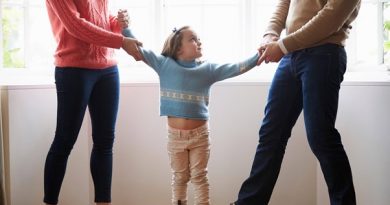10 Subtle Signs Your Spouse Might Be Depressed
Depression can be a serious issue, and it can also come in all shapes and sizes. While there are many signs and symptoms of depression, no two people experience depression in the same way. Depression is a spectrum of experiences, and noticing what depression looks like on one person is not the same as noticing how it looks on another. But when it comes to your close friends and family members — especially someone as close to you as your spouse or partner, you can take stock of their moods, behaviors and ticks carefully to see if there is something worth looking into.
If you feel like there definitely is something off about your spouse as of late, keeping an eye out for some of the common signs of depression can help you get an idea of what could be going on in their internal world. One of the most important things you can do when your partner is depressed is paying attention, listening and supporting them. Therefore, by being attentive to their needs and their mental state, you’re already ahead of the game. If you think your spouse might be depressed, here are a few signs that you may want to keep an eye out for.
Contents [hide]
1. Sadness
While this one may seem a bit self-explanatory, you can never be too careful. Even if your partner seems sad for specific or circumstantial reasons, that could still point to depression, especially if it seems like even little things that didn’t used to affect them are beginning to make a bigger and bigger impact on their mood.
2. Fatigue
Fatigue is another symptom of depression. It can manifest itself in a lot of different ways, from simple tiredness to overall sluggishness. If your partner seems fatigued most of the time, or even just more than usual, depression could be the culprit.
3. Hopelessness
While similar to sadness, hopelessness isn’t just about emotions — it’s also about outlook and ideas. If you notice your spouse feeling unenthusiastic about the future, pessimistic about the world or generally hopeless about the direction of life, that could mean general hopelessness. Depression often causes hopelessness along with its other symptoms.
4. Poor Self Care
When people are depressed, they often experience a decline in ability and willingness to care for themselves as robustly as before. If your partner has trouble finding the will to get out of bed, get dressed every day, exercise, brush their teeth or go to necessary appointments, that would indicate a decline in self care. While caring for yourself might seem like a basic task, it can become more difficult when you’re depressed.
5. Loss of Interest
Everyone has passions — whether they’re hobbies, classes or workout routines. But depression can often make you lose interest in the things you love. If you notice your partner doesn’t have the same vigor for their interests as they did before, this can indicate a depressive slump.
6. Anxiety
What? Anxiety can mean depression? Well, it’s not as simple as that. In some people, depression comes with factors like worrying, difficulty coping, catastrophizing and mania, which can trigger anxiety. Especially if your spouse tends to be a naturally anxious person already, anxiety and depression can sometimes go hand in hand.
7. Anger
While this isn’t the case for everyone, some people find their temper shortening when they’re depressed. Some people refer to this as irritability, too. When someone is depressed, the emotional battery is much more sensitive than usual, sometimes resulting in outbursts, temper tantrums or even simple irritation. If you notice your partner’s temper shortening, depression could be a part of it.
8. Mood Swings
Sometimes, depression isn’t as simple as feeling down all the time. In fact, mood swings can be another sign of depression. If you notice that your partner has been more emotional recently, including moods that go up and down easily, depression could be responsible.
9. Insomnia
One of the physiological impacts of depression that many people experience is insomnia. Since depression can be caused by chemical imbalances, that can also affect sleep hormones. While this certainly doesn’t apply to everyone with depression, you may notice your partner’s sleep schedule fluctuating, an inability to fall asleep or even waking in the middle of the night.
10. Aches, Cramps and Physical Pains
Unfortunately, depression can hurt all over — not just inside the mind. Depression can increase unease and fatigue, which can cause and exacerbate existing aches, pains, cramps and even migraines. If your partner seems a bit more achy and pained than usual, they may not even realize that it’s from depression, but it’s definitely possible.
Subtle Signs Your Spouse is Experiencing Depression
Depression is hard, no matter who you are — which is why having a supportive spouse and partner can be so important. Depression can come in all shapes and sizes, but when you keep your eye open, you can work with your partner to identify the issues and grow together.




